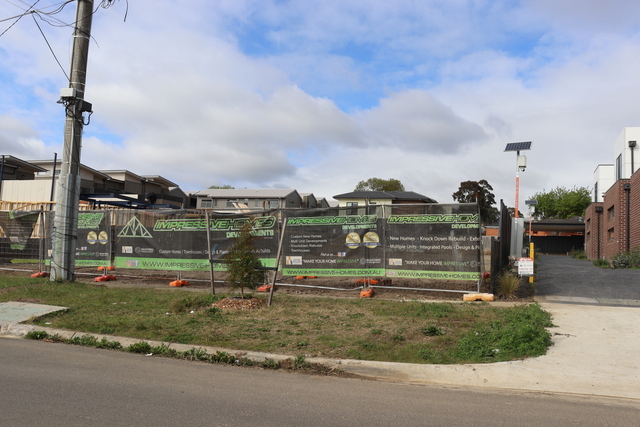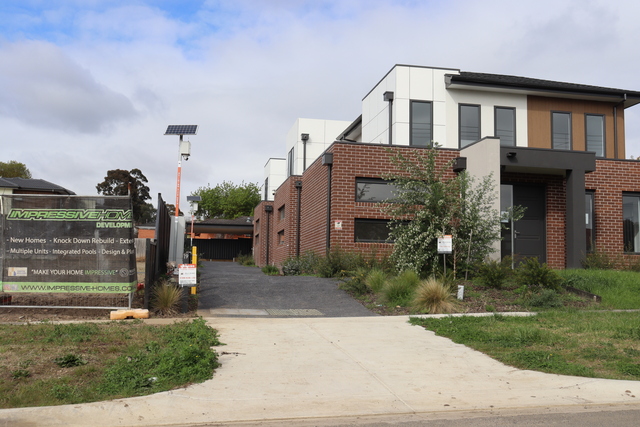A property development partnership that was set to deliver a unit complex in Baker Street Lilydale turned sour with one party accusing the other of oppressive and unfair conduct.
The Supreme Court of Victoria judgment was handed down on 4 September, finding the defendant had in fact engaged in oppressive conduct.
The dispute arose between the two equal shareholders and directors of Seventeen Baker Lilydale Pty Ltd, Rambert Hoe Lam Yap and Lucille Cheok, after Mr Yap claimed Ms Cheok removed him as a director, entered him in a loan agreement as a guarantor without his consent and used the loan funds for purposes not related to the business.
The company was formed as a joint venture to purchase and develop a property at 17 Baker Street in Lilydale.
Mr Yap purchased the property in November 2018 for $880,000, paying the 10 per cent deposit and settling the property a year later.
In December 2018, Mr Yap and Ms Cheok met at Ms Cheok’s office in Box Hill.
Mr Yap’s evidence stated Ms Cheok suggested she could manage the development of the property and split the profits with him as joint 50:50 investors. She said he approached her.
Ms Cheok, at the time, owned and was in the process of developing the neighbouring property at 19 Baker Street.
With Ms Cheok being described as an experienced property developer, it was decided that Mr Yap would hold a more passive role, “with Ms Cheok retaining unilateral control over the management and development of the property”.
After the company was incorporated in October 2019, the pair met with lawyers to sign a loan agreement. It listed both Mr Yap and Ms Cheok as personal guarantors, but Mr Yap stated he was unaware he was agreeing to be a personal guarantor.
The court also heard that Mr Yap only recalls signing a single unnumbered document titled ‘Execution Page’ and various other loose‑leaf pages on 11 November 2019.
Due to what Ms Cheok claimed to be a ‘last‑minute’ change of lender, another version of the loan agreement was executed on 15 November 2019.
“The evidence concerning the execution of this further version of the loan agreement is in issue, as the earlier version executed on 11 November 2019 and the version signed on 15 November 2019 have identical execution pages.
“It is Mr Yap’s evidence that this could have only occurred by Ms Cheok affixing his electronic signature to the loan agreement.”
The loan secured a mortgage of $595,000 to be repaid in 18 months with an interest rate of 8.5 per cent. Ms Cheok arranged for the loan to be refinanced, granting an extension in May 2021 for a further 18 months.
Mr Yap disputed that he signed the deed of variation, “and deposed that his electronic signature was affixed to the document by Ms Cheok without his knowledge or consent”.
The relationship deteriorated between the parties in mid-2022 due to the lack of progress in the development. Mr Yap suggested then that the joint venture come to an end.
“Ms Cheok admits to unilaterally removing Mr Yap as a director, without Mr Yap’s knowledge or consent, and which Ms Cheok attributed to Mr Yap’s failure to arrange development funding and refusing to answer her calls.”
Between November 2019 and July 2022, a planning permit was issued but no works were carried out. There was also no evidence of building contracts or architectural drawings for the property development.
After the initial permit lapsed, a subsequent permit was issued in January 2024.
The company, however, defaulted on its mortgage and the property was repossessed and sold in late 2024.
During the two-day trial, Ms Cheok self-represented her case after her solicitors ceased to act.
Justice Croft acknowledged the difficulties associated with self-representation, especially in complicated commercial litigation.
Ms Cheok admitted the company still has a debt of approximately $100,000 owing to the lender. She also requested the company remain registered, but the court found this position untenable.
The court found Ms Cheok’s testimony to be inconsistent and at times evasive.
“Ms Cheok has engaged in several acts of oppressive conduct, specifically by affixing Mr Yap’s signature on the second loan agreement and removing him as a director of the Company, and then proceeding to vary the loan, for which Mr Yap was a guarantor, in all respects in the absence of Mr Yap’s knowledge or consent,” Justice Croft said.
As a result, the court ordered that the company, Seventeen Baker Lilydale Pty Ltd, be wound up.

















